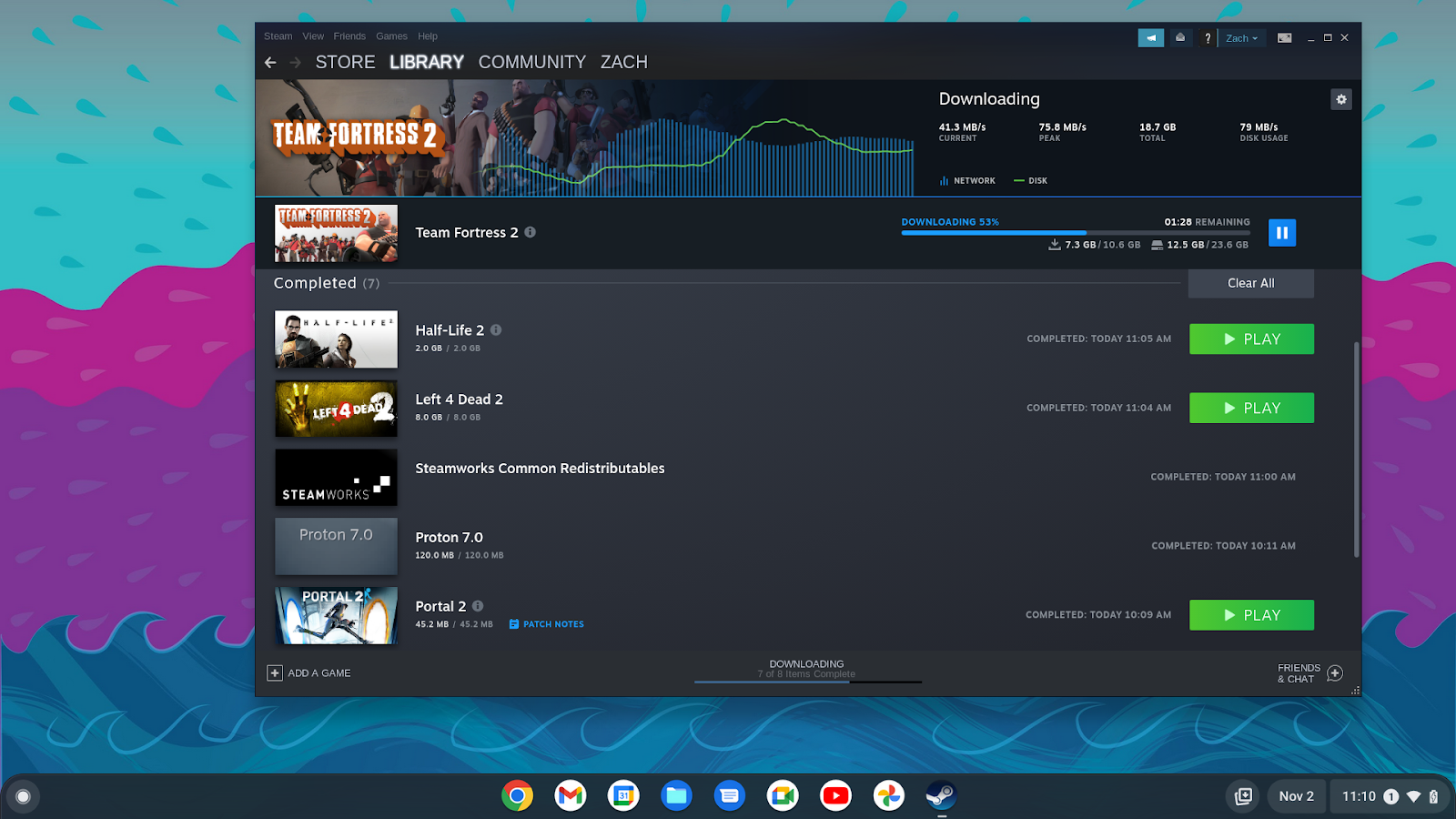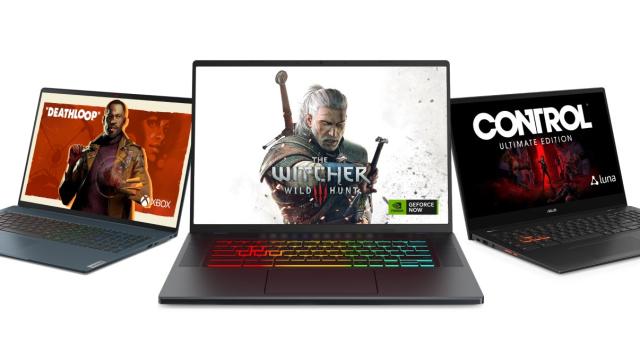You know the old joke about running Doom on everything from graphing calculators to rotten potatoes to even a window inside Doom itself? Well, we’re starting to progressively witness the same thing, but with your entire Steam game library. On Thursday, Google announced that Chromebooks running ChromeOS 108 beta will be able to run a beta version of Steam’s gaming platform, which promises some improvements over its alpha version, including better performance and game compatibility.
While the alpha was restricted by its requirement that users switch over to the ChromeOS Dev channel, Google now has instructions as well as a list of supported Chromebooks, though you may still need a bit of technical know-how — or at least a strong ability to follow commands — to get Steam running. The Google devs noted that the Dev channel was unstable for many users, so the switch may finally offer Chromebook users a full taste of their Steam library on the go, at least when they’re not dragging around a Steam Deck.

Product Manager Zach Alcorn also noted in the announcement post that his has team added support for devices runing AMD Ryzen 5000 C-Series CPUs and 12th Gen Intel Core CPUs. The minimum CPU requirements are now at a low-low baseline of an i3 or a Ryzen 3. While you can technically run some games with such minimal specs, the Google devs said they recommend 16GB of RAM and a Core i5 or Ryzen 5 or better CPU. Google included a list of supported devices here.
While the company said there were “hundreds of Steam games” that are playable on a “wider variety of Chromebooks,” it further added that many other games wouldn’t run perfectly, such as Dota 2 or Grand Theft Auto V displaying framerate slowdowns during the first few minutes of gameplay. Other games may need 16GB of ram and graphics settings set to medium or lower, such as The Witcher 3: Wild Hunt or Fallout 4. The full compatible game list is available here.
Google has been reportedly working to get Steam compatible with ChromeOS since at least January, 2020, but the company has also had to craft some workarounds to get around the inherent storage issues on mainly cloud-based devices like Chromebooks. The devs also said they worked to save on Chromebooks’ beloved battery life by reducing CPU overhead in Vulkan 1.3 and DirectX 12 titles, all while making those same titles run a bit more smoothly with better display scaling.
Google recently revealed it has worked with manufacturers to create three different Chromebooks specifically meant to support gaming (though these are primarily aimed at the Cloud). The new Chromebooks from the likes of Asus, Acer, and Lenovo all start at $US700 ($972), which is getting a little too close to comfort to the price of a full laptop. Still, the benefit is that each model does support high-resolution screens and CPUs including 11th gen Core i7 and Core i5 models for the Asus and Lenovo laptops, respectively.
Although there is something a little suspect in paying $US700 ($972) for a device if you’re just looking to get access to your Steam library on the go. Now that the Steam Deck has run through its reservations, even the hefty 512GB version will only set you back $US649.99 ($902).
Getting certain games to run on cheaper laptops may be more of a novelty than anything, but it is a promising moment and another avenue we might take to a future where playing the latest games isn’t dependent on owning a $US500+ ($694)+ console or being required to shell out thousands for a top of the line PC.
